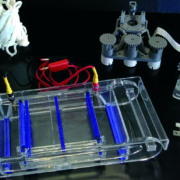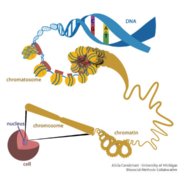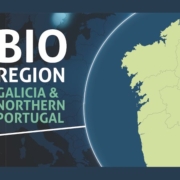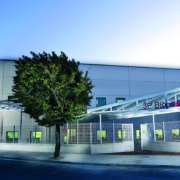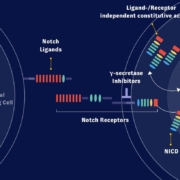While open innovation may be seen as a way of cutting costs by shutting down in-house R&D in favour of promoting spin-offs, start-ups, and biotech SMEs, the open science movement aims to establish a completely new model for how to spur innovation. Eliminating intellectual property-related restrictions, open biology promises rapid and local production of biomaterials, diagnostics, or genome-edited crops in countries with no established IP system.
ADVERTISEMENT
While open innovation may be seen as a way of cutting costs by shutting down in-house R&D in favour of promoting spin-offs, start-ups, and biotech SMEs, the open science movement aims to establish a completely new model for how to spur innovation. Eliminating intellectual property-related restrictions, open biology promises rapid and local production of biomaterials, diagnostics, or genome-edited crops in countries with no established IP system.
The technology of Oxford-based Oxford Biodynamics (OBD) promises insights into why immunotherapies only work in some patients but not in all. A major US pharma company now wants to validate OBD’s epigenetic biomarker discovery and development platform causing a share price gain of 15%.
The geographical proximity of Spain’s Northwestern region Galicia to Northern Portugal is a key factor for the birth of the new bioregion CT-Bio. This achievement looks forward to improving business competitiveness and the consolidation of the biotech and life sciences sector internationally.
Spanish 3P Biopharmaceuticals has shown tremendous growth, at least 10 per cent above market growth rate in the past four years. European Biotechnology spoke with Dámaso Molero, CEO of the Spanish CDMO, about growth perspectives and future strategies.
Paris-based European venture capital company Truffle Capital closed its €250m BioMedTech fund – celebrating its company building approach.
Basel-based biopharma company Cellestia Biotech AG has successfully closed a Series B financing round, raising a total of CHF 20 million.
Enzymes have been used widely for years to bleach textiles or shrink wool. However, the clothing sector is one of the world’s most polluting industries. And now fashion labels are turning increasingly to sustainable biofabrication and biotech-inspired methods to help lower the environmental footprint of their products.
Luxembourg-based Inceptua has named Stefan Fraenkel as its new CEO. Fraenkel has been in charge of creating the Inceptua’s business unit Inceptua Pharma since 2017.
Data from 1,200 heart failure patients demonstrate that high discharge levels of the biomarker bio-ADM® (bioactive Adrenomedullin) indicate residual congestion in heart failure patients.


